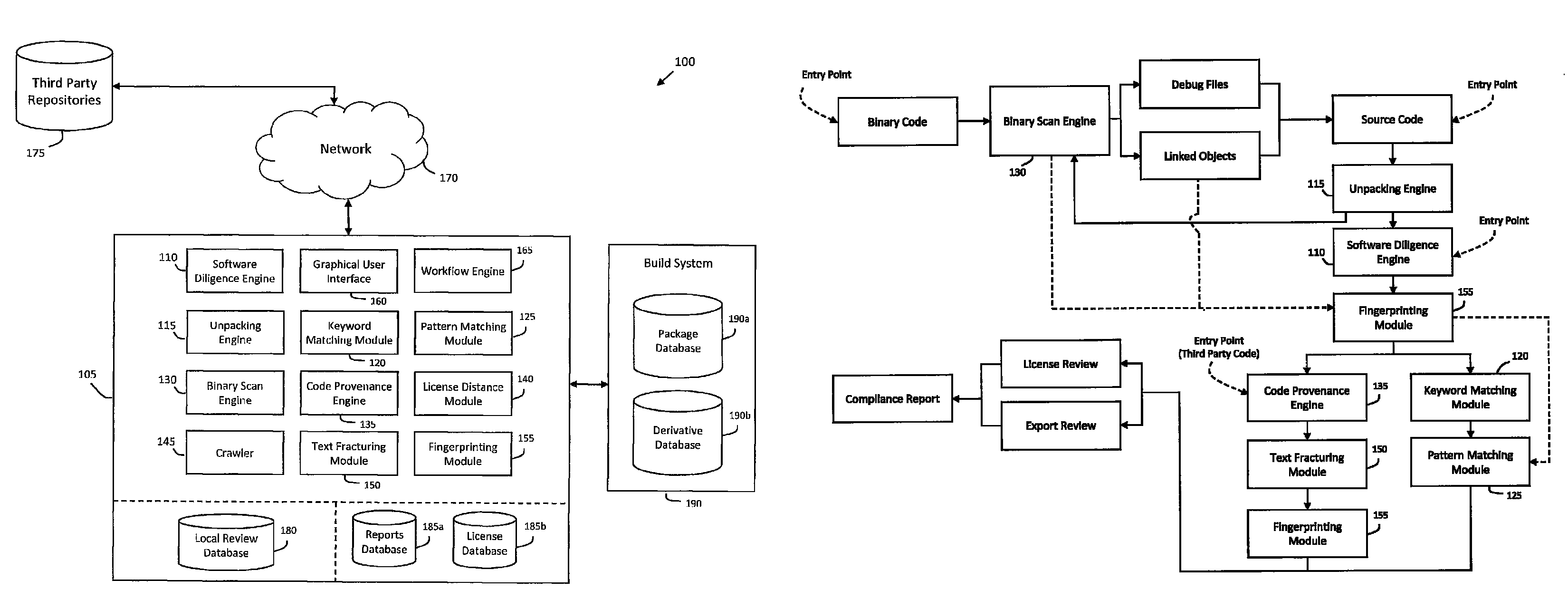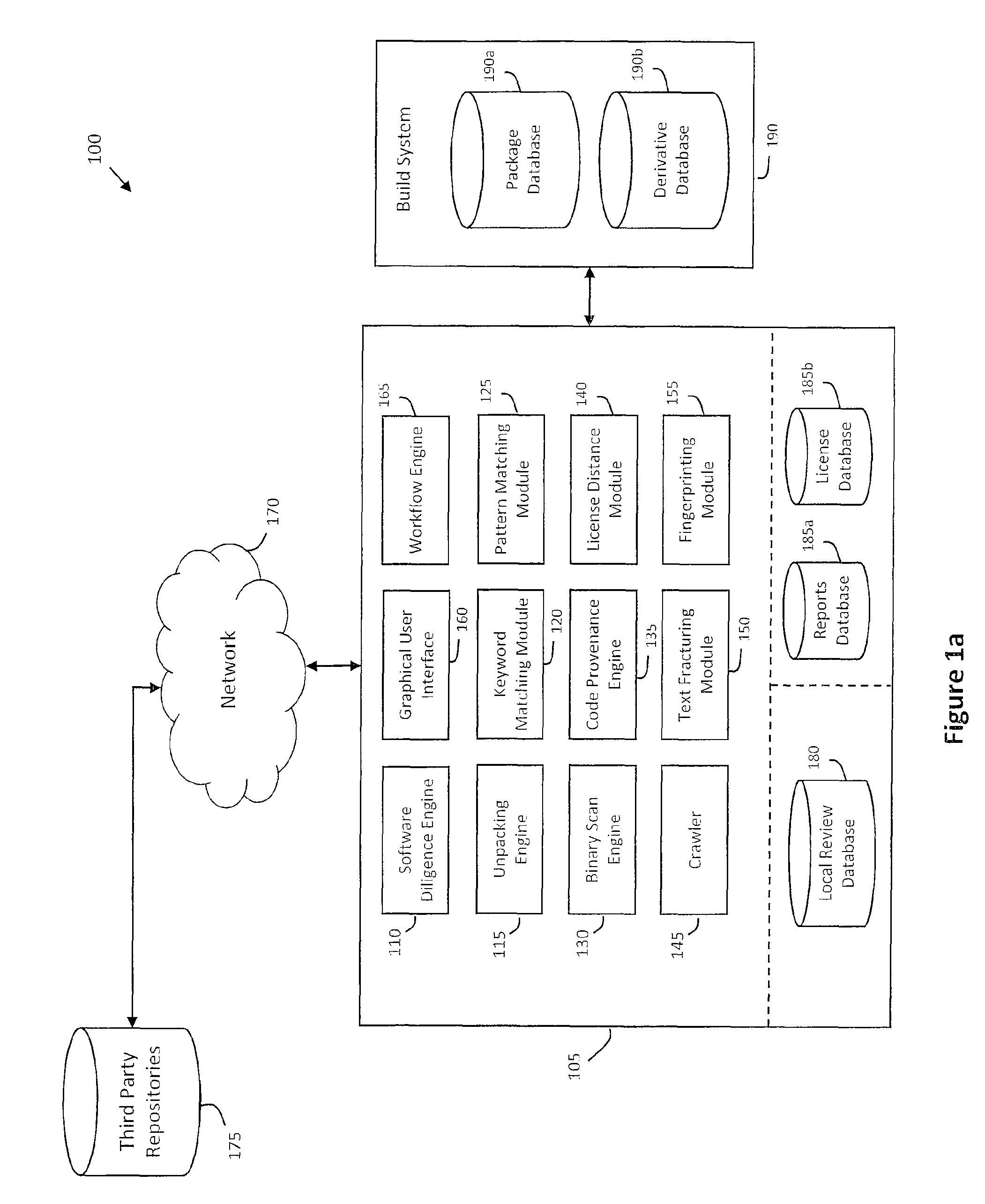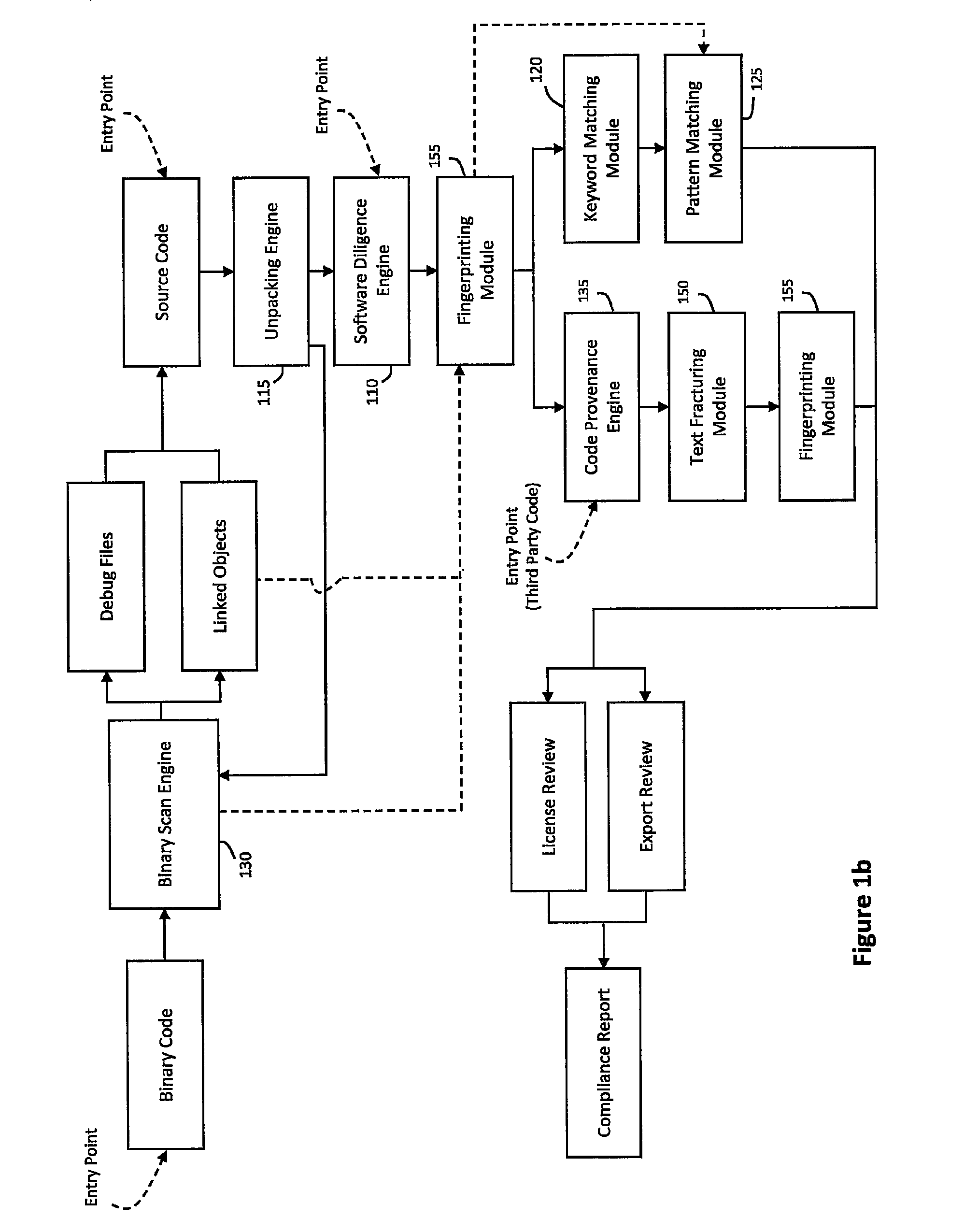System and method for performing code provenance review in a software due diligence system
ode provenance technology, applied in the field of system and method for performing code provenance review in a software due diligence system, can solve the problems of difficult to ensure license compliance and compatibility for all of the software in a given product, the compatibility of different open source licenses may not always be clearly discernable, and the space available in metadata fields or rpm headers for describing software licenses is generally limited to a few words
- Summary
- Abstract
- Description
- Claims
- Application Information
AI Technical Summary
Benefits of technology
Problems solved by technology
Method used
Image
Examples
Embodiment Construction
[0032]According to one aspect of the invention, FIG. 1a illustrates an exemplary system 100 for automating software due diligence, wherein software due diligence may generally include reviewing software components for compliance and compatibility with open source licenses, intellectual property (IP) rights, export regulations, or other such issues. In one implementation, the system 100 be integrated with a build system 190 in order to track licenses, risk level, review status, and other compliance issues for software subject to due diligence review. For example, as used herein, software subject to due diligence review may include various packages or other source files defined to be a group or collection of related software components. In one implementation, each package submitted to the build system 190 may be stored in a package database 190a for due diligence review. For example, FIG. 1b may illustrate an exemplary workflow for performing software due diligence review using the sy...
PUM
 Login to View More
Login to View More Abstract
Description
Claims
Application Information
 Login to View More
Login to View More - R&D
- Intellectual Property
- Life Sciences
- Materials
- Tech Scout
- Unparalleled Data Quality
- Higher Quality Content
- 60% Fewer Hallucinations
Browse by: Latest US Patents, China's latest patents, Technical Efficacy Thesaurus, Application Domain, Technology Topic, Popular Technical Reports.
© 2025 PatSnap. All rights reserved.Legal|Privacy policy|Modern Slavery Act Transparency Statement|Sitemap|About US| Contact US: help@patsnap.com



